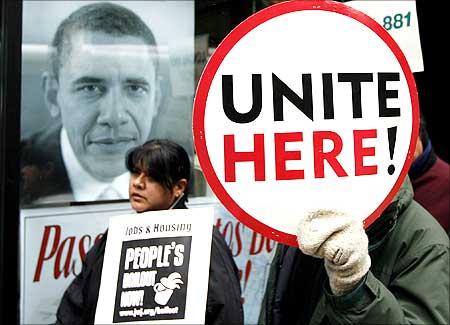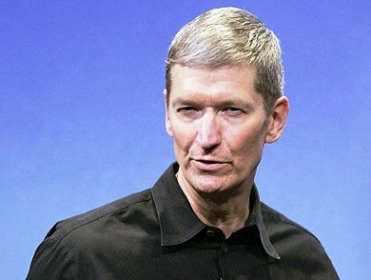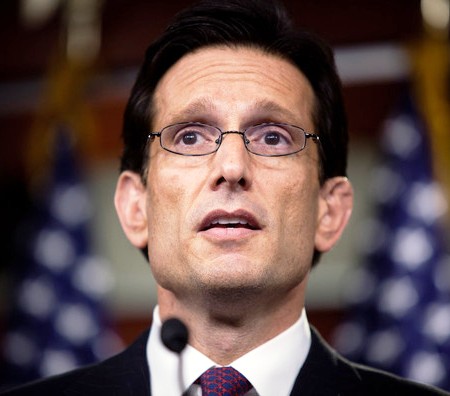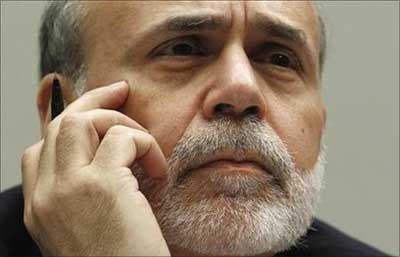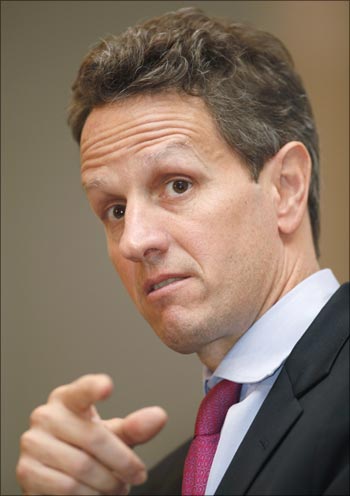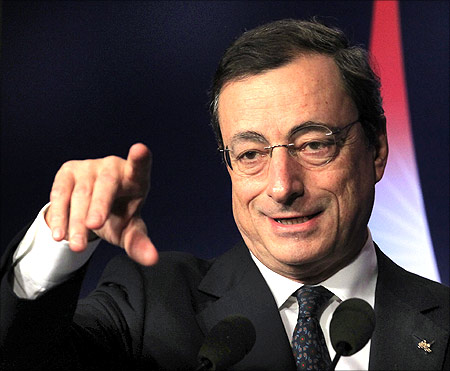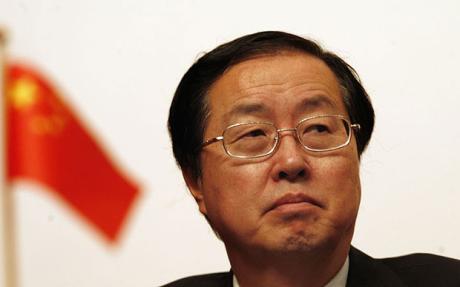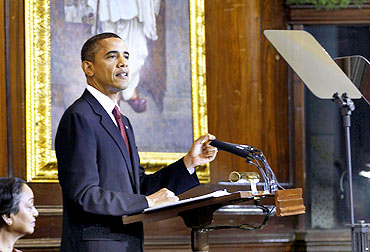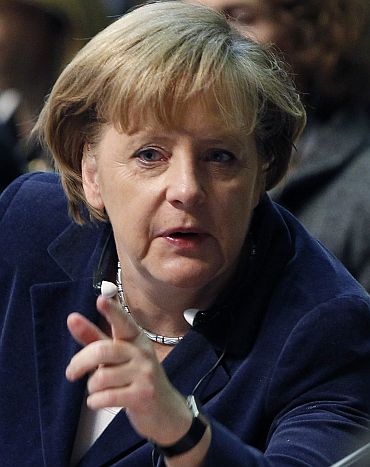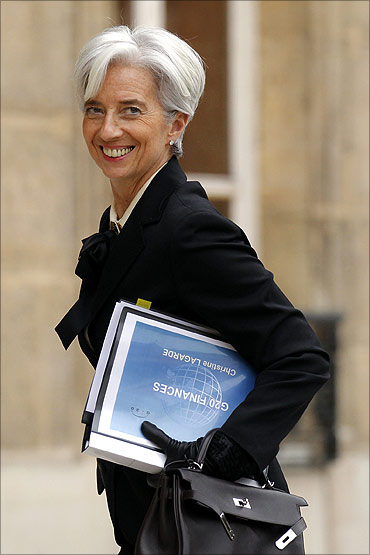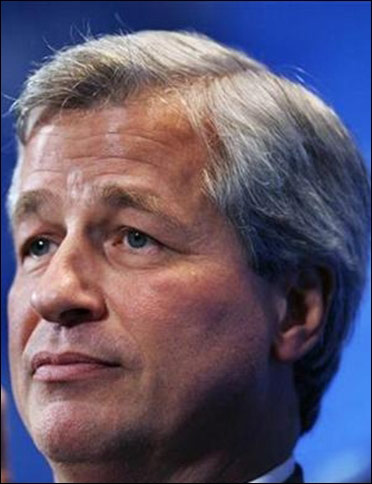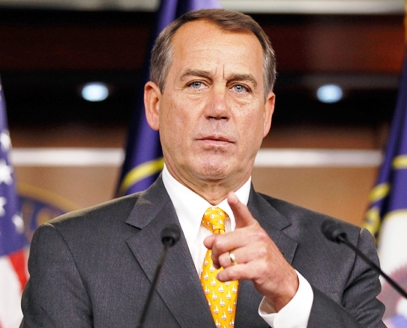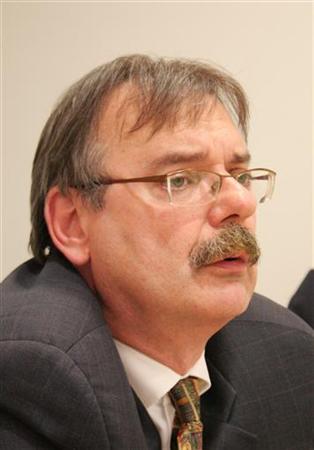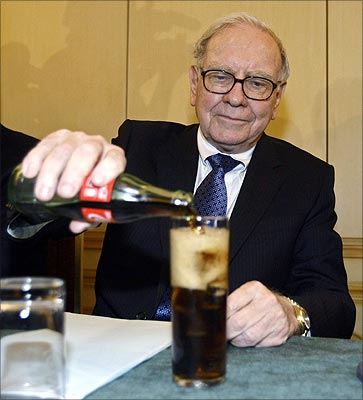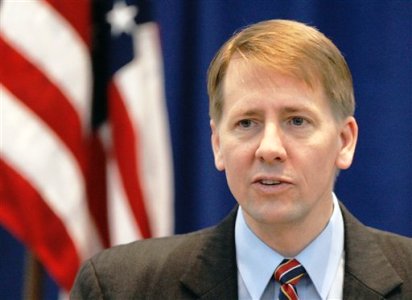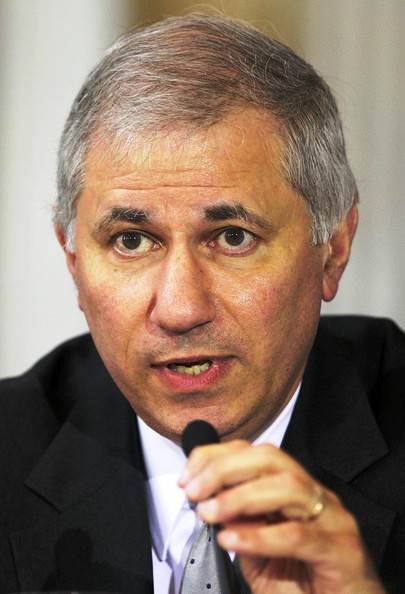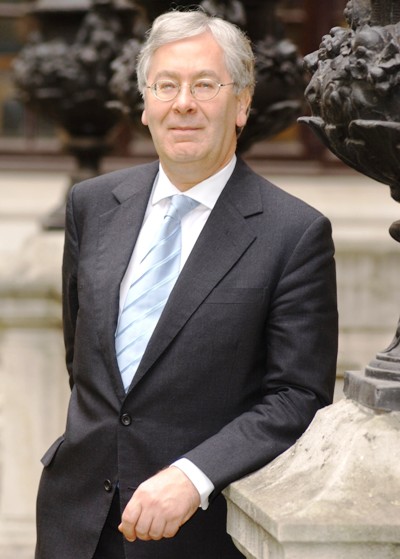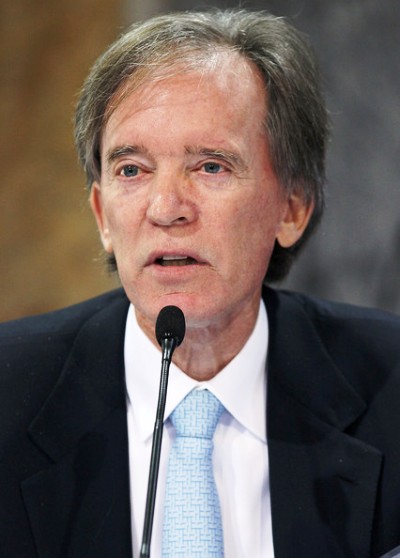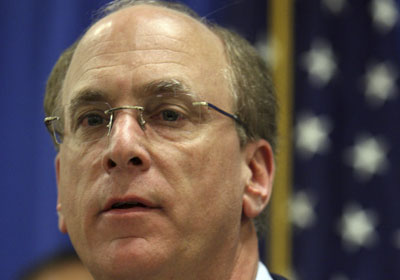 | « Back to article | Print this article |
World's 20 most powerful people in finance
The global economic scene is bleak. Very bleak.
The Eurozone is reeling under a crippling debt crisis, the United States' debt rating has been downgraded and world leaders are losing sleep over their attempts to find ways to beat the impending slowdown, indeed recession.
Amid this crisis, some prominent business names are relentlessly trying to shape the future.
Worth.com recently came up with a list of 100 such influential names. In this slide show, we talk about 20 big personalities. . . Click NEXT to know about them. . .
World's 20 most powerful people in finance
1. Tim Cook
CEO, Apple
Born in Alabama in 1960, Cook earned an engineering degree from Auburn and an MBA from Duke.
Starting in 1982, he worked for IBM for 12 years and then moved to Intelligent Electronics in 1994 and Compaq in 1997.
Steve Jobs brought Cook from Compaq to revamp and oversee manufacturing, distribution and supply operations.
Cook became Apple's chief operating officer in 2007 and chief executive officer in August 2011, when Jobs resigned from the position.
Taking over the reins from someone as big as Steve Jobs is not easy.
However, it is said that Cook had already been running Apple for years because of Jobs' fight against cancer.
Apple employs thousands of people, it's building a massive, future-minded new headquarters in Cupertino, California; its products are beautiful and brilliant, functional and inspiring.
The Chinese want Apple products so badly that entrepreneurs are building wholly fake Apple stores in which to sell them.
Click NEXT to read further. . .
World's 20 most powerful people in finance
2. Eric Cantor
Congressman; majority leader of the House
Born in Richmond, Virginia, Cantor attended George Washington University and interned for Tom Bliley, Grand Old Party congressman from Virginia, during college.
His paternal family immigrated from Hungary in the early 1900s.
Earning degrees from William & Mary and Columbia, Cantor worked for the family real estate firm and served in the Virginia House of Delegates.
Cantor became majority leader in November 2010.
Cantor is the leading congressional advocate for the us-against-the-world demands of the Tea Party.
Click NEXT to read further. . .
World's 20 most powerful people in finance
3. Ben Bernanke
Chairman, the United States Federal Reserve
A Harvard and MIT-trained economist, Bernanke was chair of George W Bush's Council of Economic Advisers from June 2005 to January 2006.
Bush appointed him Fed chair effective February 2006, and Barack Obama reappointed him in 2010.
To fight recession, the Bernake has shown himself willing to use all the tools at his disposal.
He is simultaneously the most liked and most hated man of the moment.
All the GOP presidential candidates oppose his reappointment, Texas governor Rick Perry suggested that Bernanke should be physically beaten and Tea Party devotees cheer (literally) Perry's charge that Bernanke is a traitor.
Click NEXT to read further. . .
World's 20 most powerful people in finance
4. Timothy Geithner
Secretary of the Treasury
Geithner worked for Kissinger Associates in Washington for three years and then joined the International Affairs division of the US Treasury Department in 1988.
He went on to serve as an attache at the Embassy of the United States in Tokyo.
He was deputy assistant secretary for international monetary and financial policy (1995-1996), senior deputy assistant secretary for international affairs (1996-1997), assistant secretary for international affairs (1997-1998).
Geithner's current position includes a prominent role in directing the Federal Government's spending on the 2008-09 financial mess, including allocation of $350 billion of funds from the troubled asset relief programme enacted during the previous administration.
Geithner believes, along with Henry Paulson, that the US Department of the Treasury needs new authority to experiment with responses to the late-2000s financial crisis.
Click NEXT to read further. . .
World's 20 most powerful people in finance
5. Mario Draghi
President, European Central Bank (as of November 1)
Mario Draghi is an Italian banker and economist who succeeded Jean-Claude Trichet as President of the European Central Bank on 1 November 2011.
Born in Rome, Draghi graduated from La Sapienza University of Rome and earned a PhD in economics from the Massachusetts Institute of Technology in 1976.
He was full professor at the University of Florence from 1981 until 1991.
From 1984 to 1990 he was the Italian Executive Director at the World Bank.
In 1991, he became director general of the Italian Treasury, and held this office until 2001.
During his time at the Treasury, he chaired the committee that revised Italian corporate and financial legislation and drafted the law that governs Italian financial markets.
He is also a former board member of several banks and corporations.
Click NEXT to read further. . .
World's 20 most powerful people in finance
6. Zhou Xiaochuan
Governor, People's Bank of China
Zhou served as a vice governor of the People's Bank of China and governor of the China Construction Bank before being named governor of the People's Bank of China in 2002.
Reflecting China's status as the top buyer of US debt, Zhou was an active voice during Washington's debt ceiling fiasco.
Aſter the passage of the Budget Control Act, Zhou noted that the PBC would "closely observe its implementation."
Click NEXT to read further. . .
World's 20 most powerful people in finance
7. Barack Obama
President of the United States
An Illinois senator, Obama was elected to the presidency in 2008.
With a bleak global economic scenario as the backdrop, the US President looked weak during the summer fight over the debt ceiling.
He has lately shown tremendous grit with his belated focus on jobs and a threat to veto spending cuts without tax hikes.
However, he must not forget that he is running out of time.
If the economy doesn't improve by summer 2012, voters' impressions of it -- and him --won't change by the fall.
Click NEXT to read further. . .
World's 20 most powerful people in finance
8. Angela Merkel
Chancellor of Germany
In 2005, Merkel became the first woman and first former East German to lead Germany. She was reelected in 2009 and, as head of Europe's strongest economy, is critical to solving its debt crisis.
Merkel is in a tricky position at the moment.
Germans don't want to spend more money bailing out Greece etc., while other Europeans want Merkel to commit more deeply to the European Union.
Click NEXT to read further. . .
World's 20 most powerful people in finance
9. Christine Lagarde
Managing director, International Monetary Fund
When Dominique Strauss-Kahn resigned as the International Monetray Fund head following his arrest in May, Lagarde quickly threw her hat into the ring to replace him.
Born in France, Lagarde was partly educated in the U.S. and interned in Congress, then returned to France for law school.
Starting her career there with the American law firm Baker & McKenzie in 1981, she became chair of the firm (the first woman to do so) in 1999.
Six years later, she became French president Jacques Chirac's trade minister, where she overcame early stumbles to earn a reputation as a gifted negotiator.
Click NEXT to read further. . .
World's 20 most powerful people in finance
10. Jamie Dimon
Chairman and CEO, JPMorgan Chase
An HBS grad, Dimon rose through the financial world to become chief executive officer of Bank One in 2000, then eventually took the same title at JPMorgan Chase aſter it purchased Bank One in 2004.
Dimon steered his bank through the financial crisis relatively unscathed and emerged as the country's most competent bank head -- perhaps the only famous face of his industry who was not the object of public anger.
Click NEXT to read further. . .
World's 20 most powerful people in finance
11. John Boehner
Congressman and speaker of the House
Boehner was an Ohio native who worked at a small packaging business before getting elected to Congress in 1990.
Boehner was elected Speaker by the House GOP caucus in November 2010.
Boehner is the nation's top Republican, second in line to the presidency and charged with positioning his party in opposition to President Obama before November 2012.
Click NEXT to read further. . .
World's 20 most powerful people in finance
12. David Beers
Managing director and global head of sovereign ratings group, Standard & Poor's
Once a Salomon Brothers economist, Beers joined S&P in 1990, focusing on rating sovereign debt.
Beers helps oversee more than 70 analysts who rate 126 governments.
Click NEXT to read further. . .
World's 20 most powerful people in finance
13. Warren Buffett
Chair and CEO, Berkshire Hathaway
One of the most successful investors with an estimated net worth of $50 billion.
Buffett continues to do what he likes the most: work, work and work.
In 2007, Buffett beat Bill Gates to become the world's richest man. Buffett's journey to become the world's richest is truly inspirational.
In August 2011, he propped up Bank of America head Brian Moynihan with a $5 billion investment in that firm.
Click NEXT to read further. . .
World's 20 most powerful people in finance
14. Computer Hackers
From credit card fraud to WikiLeaks, hackers have put the financial industry on notice: Your secrets are not safe.
Nasdaq alone is spending up to $965 million in 2011 to protect itself from hacks, while two-thirds of US banks are boosting spending on fraud-detection.
The earliest hackers can be traced to the first computer labs at MIT, Carnegie Mellon and Stanford in the 1960s.
In 1994, a group of Russian hackers stole $10 million from Citibank through wire transfers, and recently, hackers have organized their talents into groups (Anonymous in 2003, LulzSec in 2011) that are increasingly targeting corporate America.
Click NEXT to read further. . .
World's 20 most powerful people in finance
15. Richard Cordray
Director (nominated), Consumer Financial Protection Bureau
When Republicans made it clear that they would block Elizabeth Warren, the Harvard law prof who first proposed the CFPB, Obama turned to Cordray with similar views on financial regulation but who is less of a lightning rod.
Cordray has practised law with Kirkland & Ellis, served as an Ohio state rep and was Ohio's attorney general from 2009 to 2011 before President Obama nominated him as the consumer protection agency's first head in July.
Click NEXT to read further. . .
World's 20 most powerful people in finance
16. Martin Gruenberg
Acting chairman, US Federal Deposit Insurance Corporation
Gruenberg spent 18 years as a Senate staffer working on banking issues before being appointed to the FDIC board in 2005.
In June 2011, Obama nominated him to replace departing chairman Sheila Bair.
Click NEXT to read further. . .
World's 20 most powerful people in finance
17. Mervyn King
Governor, Bank of England
King has decried the eurozone's move to extend loans to debt saddled countries, arguing for the primacy of governments over central banks.
King was a professor at the London School of Economics when he joined the Bank of England in 1990.
He has been governor of the bank since 2003.
Click NEXT to read further. . .
World's 20 most powerful people in finance
18. William H Gross
Founder, managing director and co-CIO, PIMCO
Gross co-founded PIMCO in 1971 and steered it to prominence with a singular strategy: investing in bonds.
Gross still manages the PIMCO Total Return fund and oversees more than $1 trillion in assets.
Click NEXT to read further. . .
World's 20 most powerful people in finance
19. Laurence D Fink
Chairman and CEO, BlackRock
BlackRock, which owns ETF firm iShares, lost market share to rival Vanguard in 2010. Aſter beginning his career in mortgage securities at First Boston, Fink helped found the investment firm that would become BlackRock in 1992.
Today, BlackRock runs $3.7 trillion in assets.
Click NEXT to read further. . .
World's 20 most powerful people in finance
20. Stefan Ingves
Governor, Sveriges Riksbank; chairman, Basel Committee on Banking Supervision
In June, Ingves was named to replace Nout Wellink as chairman of the Basel Committee.
Aſter earning a PhD from the Stockholm School of Economics in 1984, Ingves went on to a series of top jobs in banking supervision, including a six-year run as the director of the monetary and financial systems department of the International Monetary Fund.
He became governor of the Sveriges Riksbank, Sweden's central bank, in 2006, where he led an aggressive response to the 2008 financial crisis.
